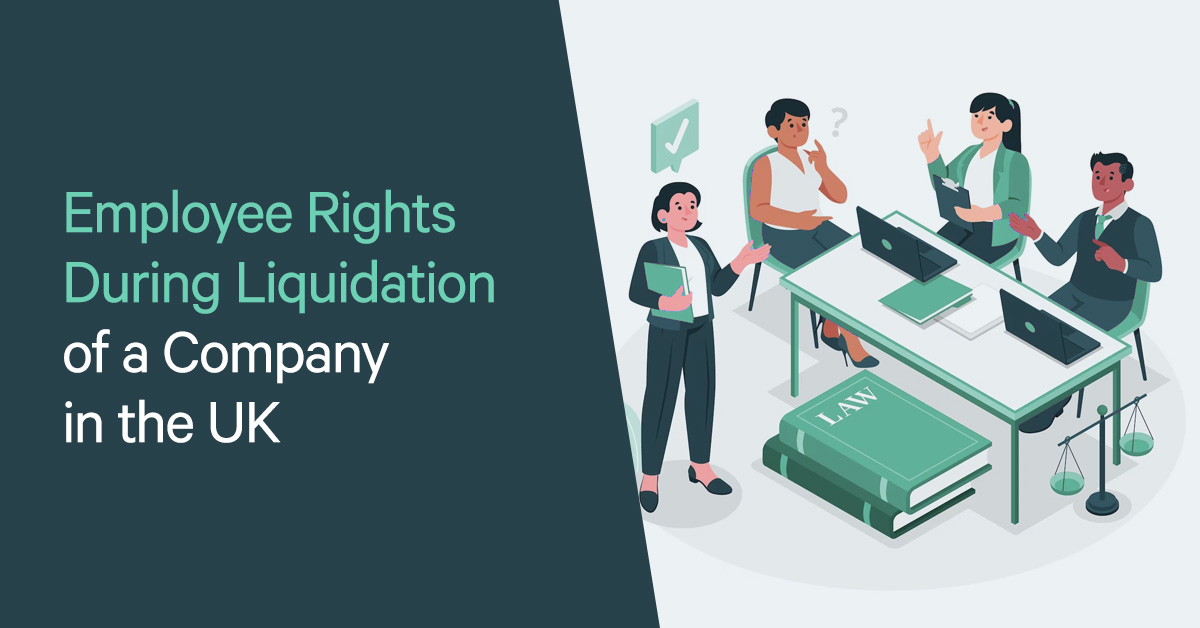What Happens to Administration Staff: Do Employees Still Obtain Paid When Company Goes Into Liquidation?
What Happens to Administration Staff: Do Employees Still Obtain Paid When Company Goes Into Liquidation?
Blog Article
Business Insolvency Company
7 Preswich Avenue, Leigh, WN7 1RZ
0333 567 1686
The Effect of Business Liquidation on Employee Legal Rights, Settlement, and Task Stability
In the realm of business dynamics, the dissolution of a firm because of liquidation can cast a darkness of uncertainty over the destiny of its employees. As the drapes close on a company endeavor, the implications for staff member legal rights, payment, and task stability involved the leading edge. The after-effects of such a procedure can leave individuals grappling with different difficulties, varying from lawful securities to economic commission. Recognizing the complexities of exactly how business liquidation impacts employees is crucial for browsing the complexities that arise in such conditions (what happens to staff when a company goes into liquidation).
Legal Defenses for Staff Members
Legal Securities for Staff members ensure that employees' civil liberties are guarded and supported in case of business liquidation. These securities offer as a critical safeguard for staff members encountering uncertainties because of their company's economic problems. One fundamental defense is the Worker Adjustment and Retraining Notification (WARN) Act, which calls for companies with over 100 employees to offer advance notice of at the very least 60 days before a plant closing or mass layoff.
Furthermore, the Fair Labor Criteria Act (FLSA) mandates that employees must receive their last paycheck promptly upon termination, consisting of any built up getaway time or perks. This regulations aims to prevent employers from withholding compensation owed to workers during the liquidation procedure. The Staff Member Retirement Earnings Security Act (ERISA) safeguards staff members' retirement funds by establishing criteria for private pension strategies and ensuring that these funds are protected, even in the occasion of a business's bankruptcy.
Effect On Payment Bundles
Amid company liquidation, the restructuring of settlement plans usually results in considerable modifications for employees. When a firm enters into liquidation, staff members are faced with the possible loss or reduction of various elements of their payment plans, such as benefits, profit-sharing, and supply alternatives. Oftentimes, superior repayments for overtime, extra vacation days, or various other advantages may likewise go to threat due to the monetary restrictions encountered by the business during the liquidation process.
Additionally, the termination of employment agreements during liquidation can result in disagreements over discontinuance wage and other types of compensation that employees are entitled to under their agreements or local labor regulations. Workers might find themselves in a perilous circumstance where they need to negotiate with liquidators or trustees to secure reasonable payment for their years of solution to the firm.
Job Security Issues
Throughout company liquidation, workers usually face heightened work safety and security problems as the future of their positions becomes unclear. The prospect of shedding their work as a result of the closure of the company can create significant anxiousness amongst workers. Job security concerns throughout liquidation are intensified by the lack of clarity pertaining to the timeline of the process, prospective redundancies, and the overall stability of the organization.
Employees may worry concerning their financial stability, occupation prospects, and the availability of similar job opportunities on the market. Unpredictability bordering the liquidation procedure can bring about reduced efficiency, work, and spirits contentment among workers. Additionally, the fear of job loss can impact staff members' psychological wellness and check here wellness.
Companies are motivated to connect freely and transparently with workers throughout the liquidation process to attend to job safety and security concerns. Giving normal updates, providing support solutions, and exploring alternative job choices can aid alleviate a few of the anxieties workers may experience during business liquidation. By prioritizing worker health and keeping clear interaction, companies can mitigate the unfavorable impact of task protection issues throughout this difficult period.
Employee Insurance Claims and privileges

Staff members are generally entitled to receive unsettled wages for a specific duration before the liquidation, which might vary by country. In addition, redundancy payments are frequently offered to staff members who are made redundant as an outcome of the liquidation process.
Strategies for Browsing Uncertainty
In times of company liquidation, staff members can utilize strategic techniques to browse via uncertainty and safeguard their privileges and rights properly. One essential method is to stay aggressive and enlightened. Keeping abreast of the liquidation procedure, comprehending their legal rights under labor legislations, and looking for legal suggestions if required can empower employees view website to make enlightened decisions. Additionally, networking with colleagues facing similar conditions can provide insights and support throughout difficult times.
A calculated action for workers is to prioritize their monetary protection. This can include discovering options such as looking for unsettled earnings with government click this plans, recognizing the hierarchy of financial institutions to evaluate the chance of receiving exceptional payments, and producing a personal spending plan to manage financial resources throughout the transition period. Updating resumes, enhancing skills with training programs, and actively looking for alternative work can assist employees protect their future beyond the liquidated firm.

Verdict
In final thought, firm liquidation can have considerable implications on employee legal rights, payment, and job stability. Employee worries concerning job security and compensation bundles must be dealt with within the legal framework to make sure reasonable therapy and appropriate compensation.

When a company goes into liquidation, employees are faced with the possible loss or reduction of numerous components of their compensation plans, such as bonuses, profit-sharing, and supply choices.During company liquidation, employees frequently face enhanced work security problems as the future of their placements becomes uncertain. Supplying regular updates, using support solutions, and checking out alternative work alternatives can aid minimize some of the anxieties employees might experience throughout company liquidation.In verdict, firm liquidation can have substantial implications on worker rights, payment, and work security.
Report this page